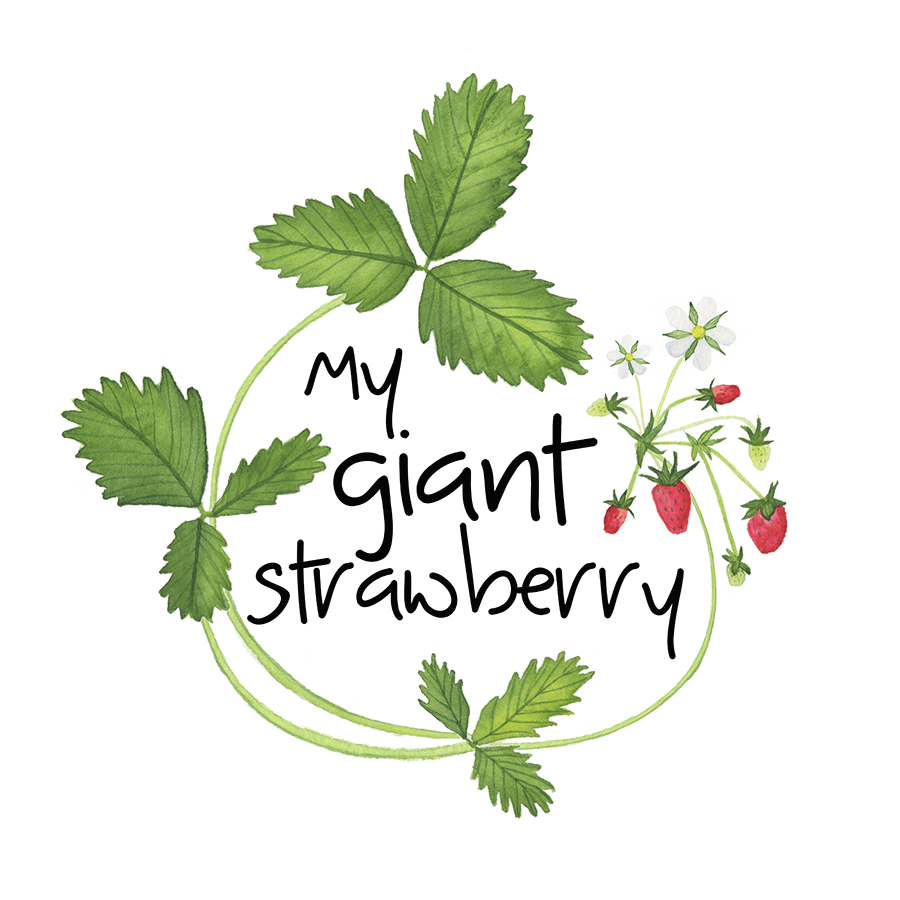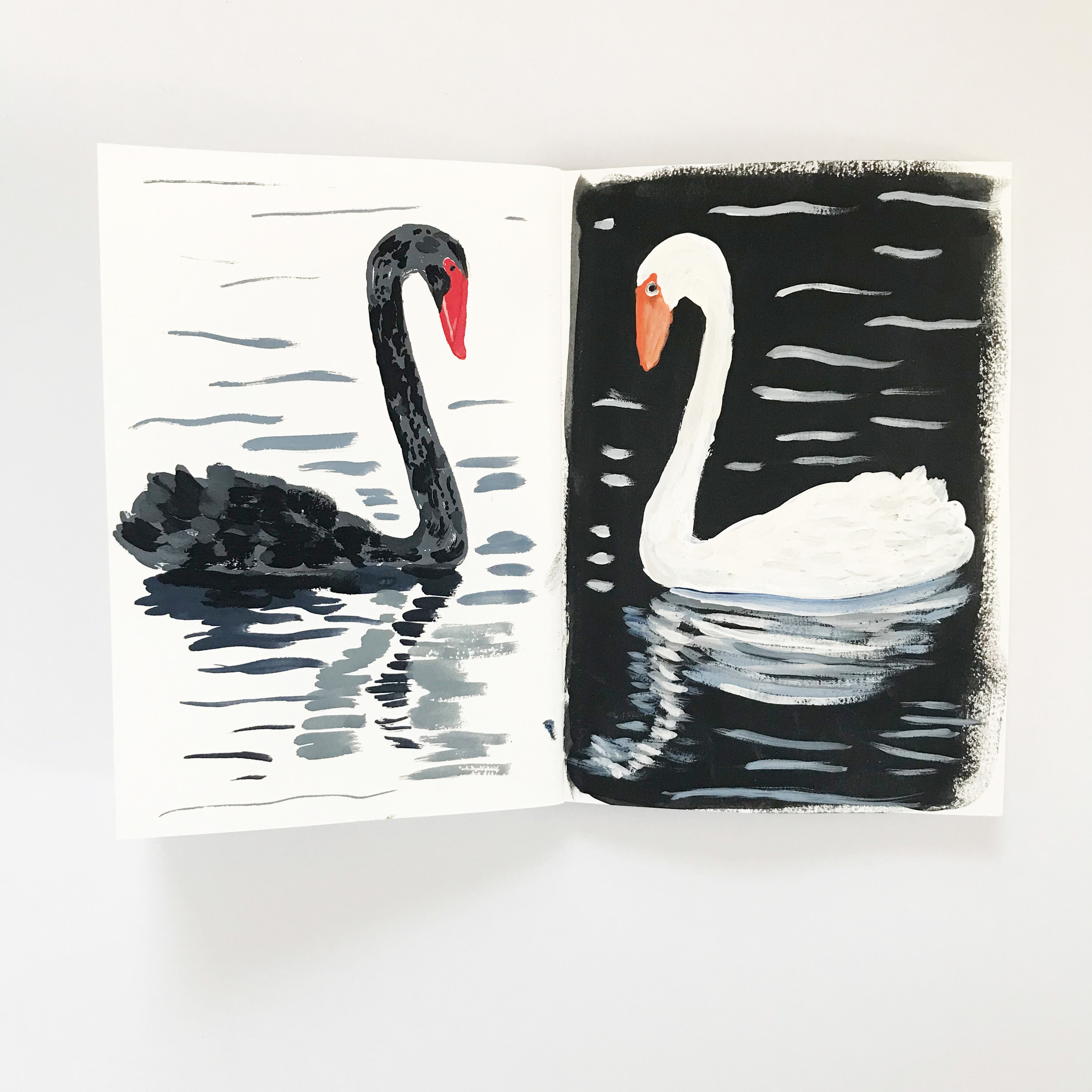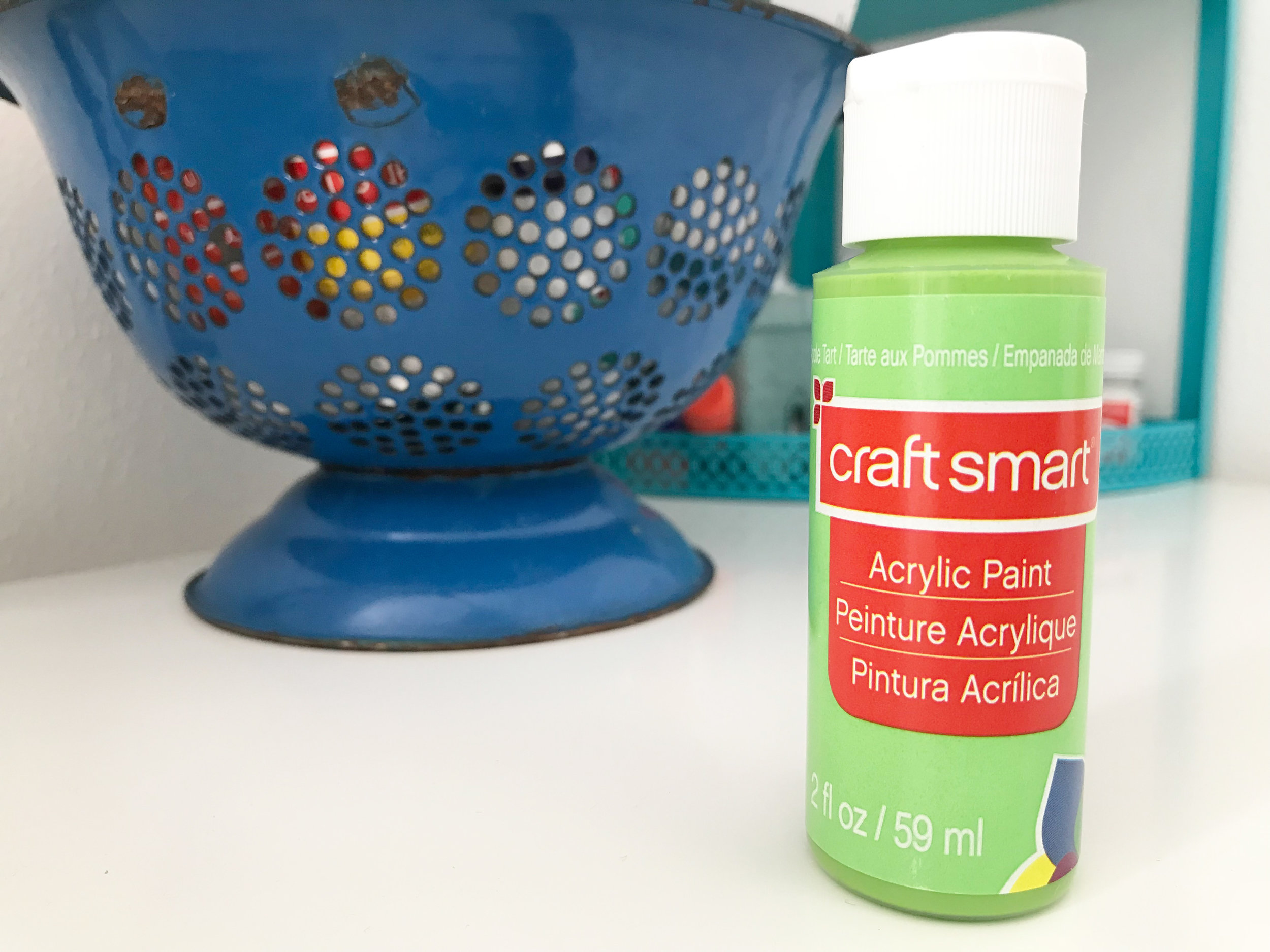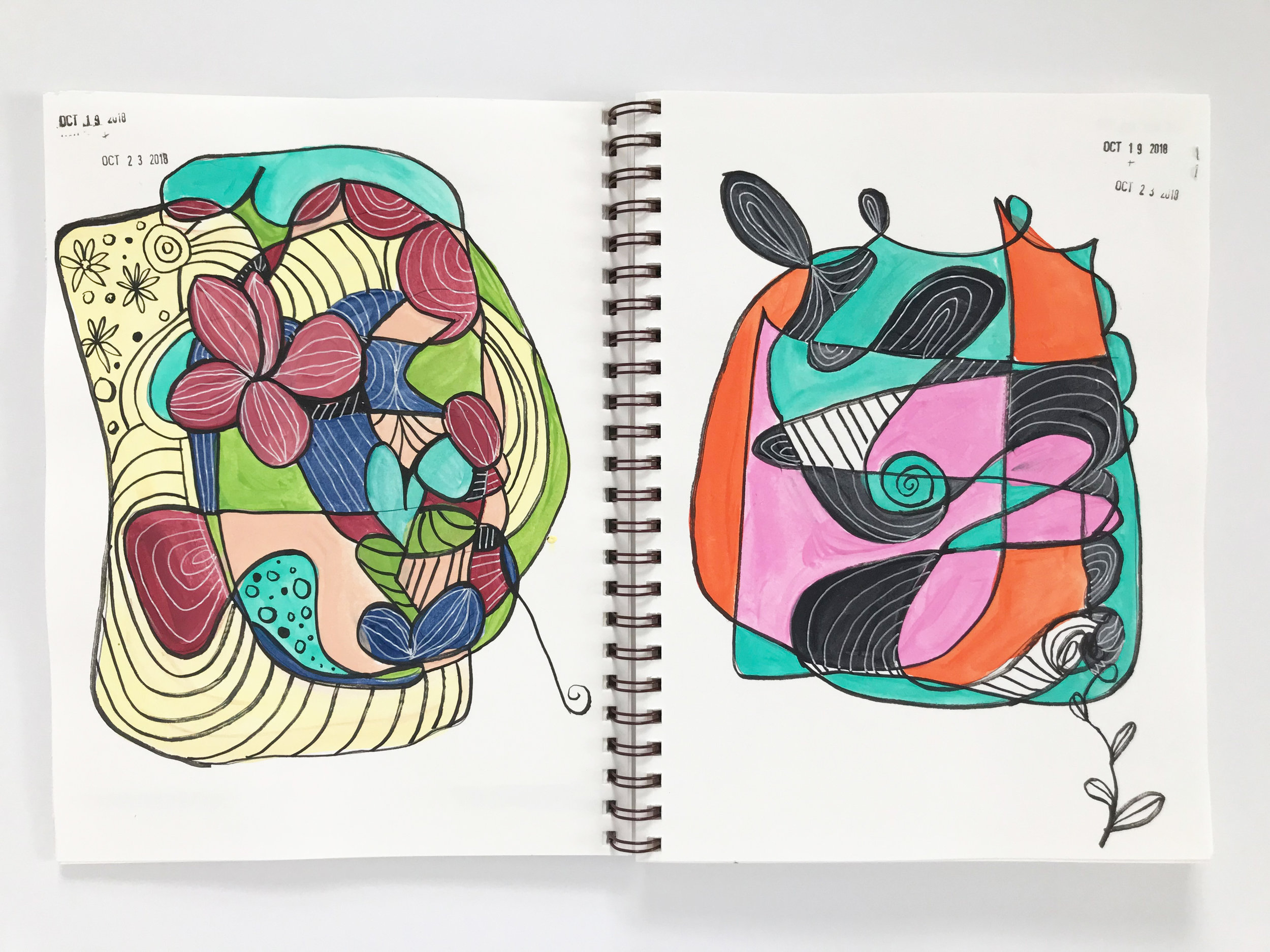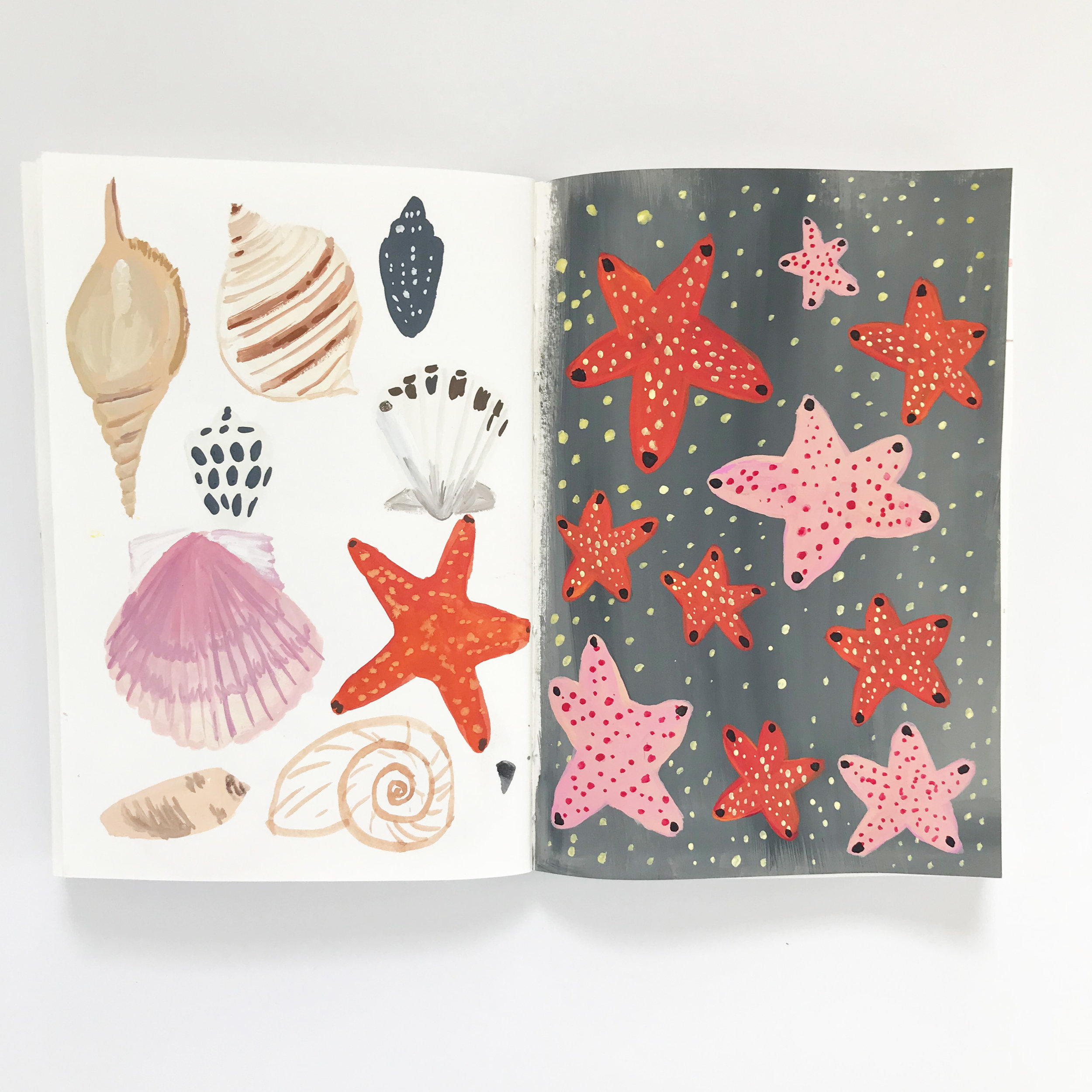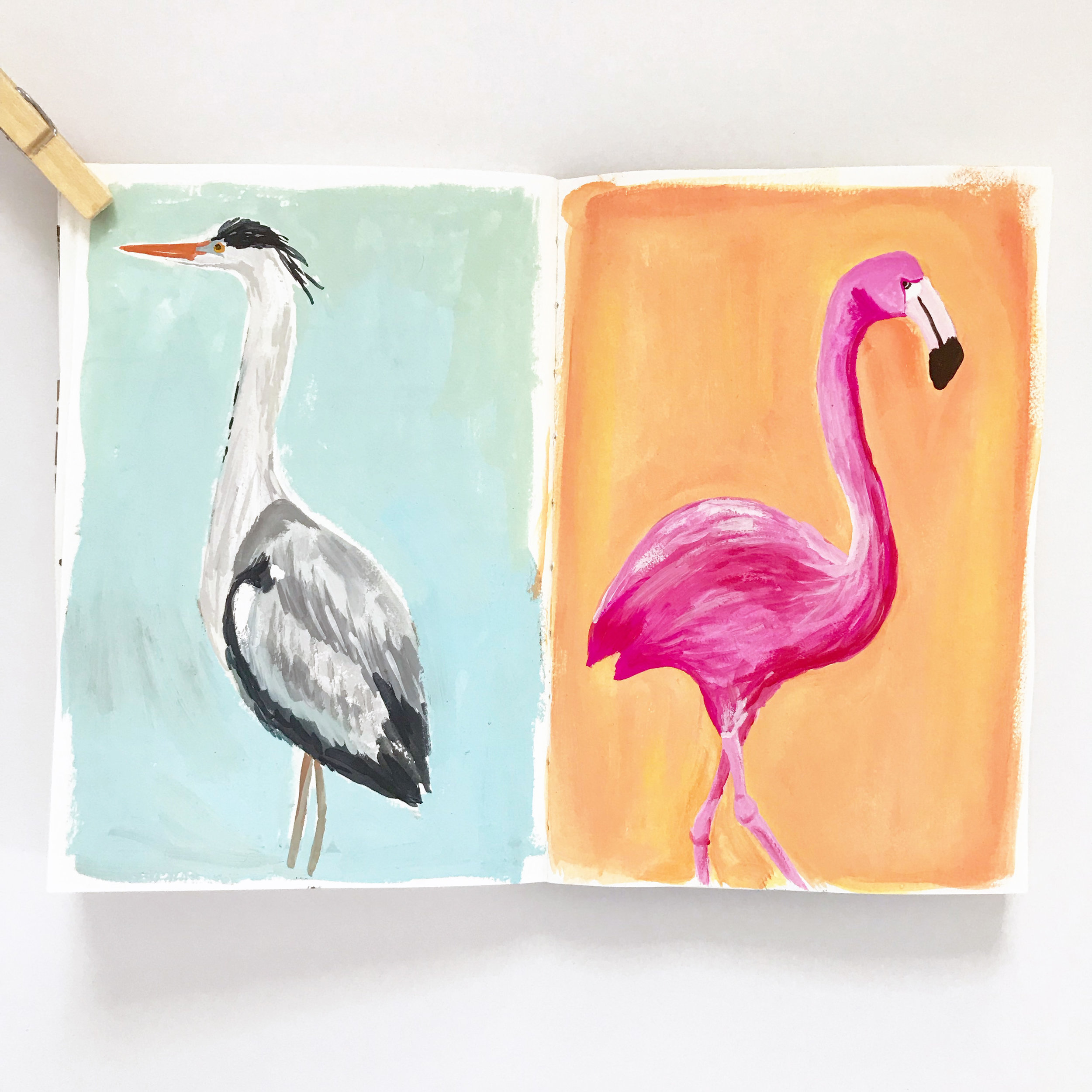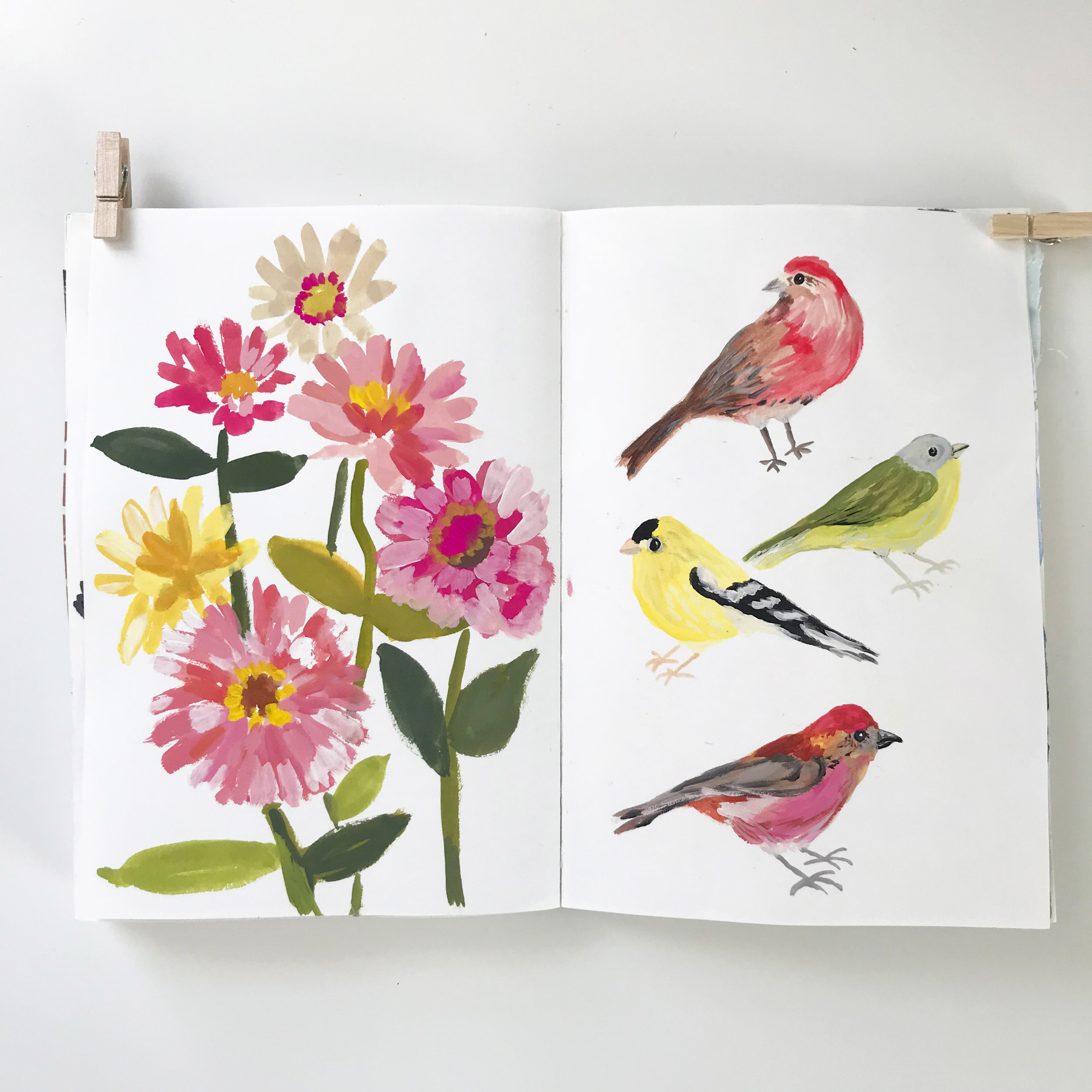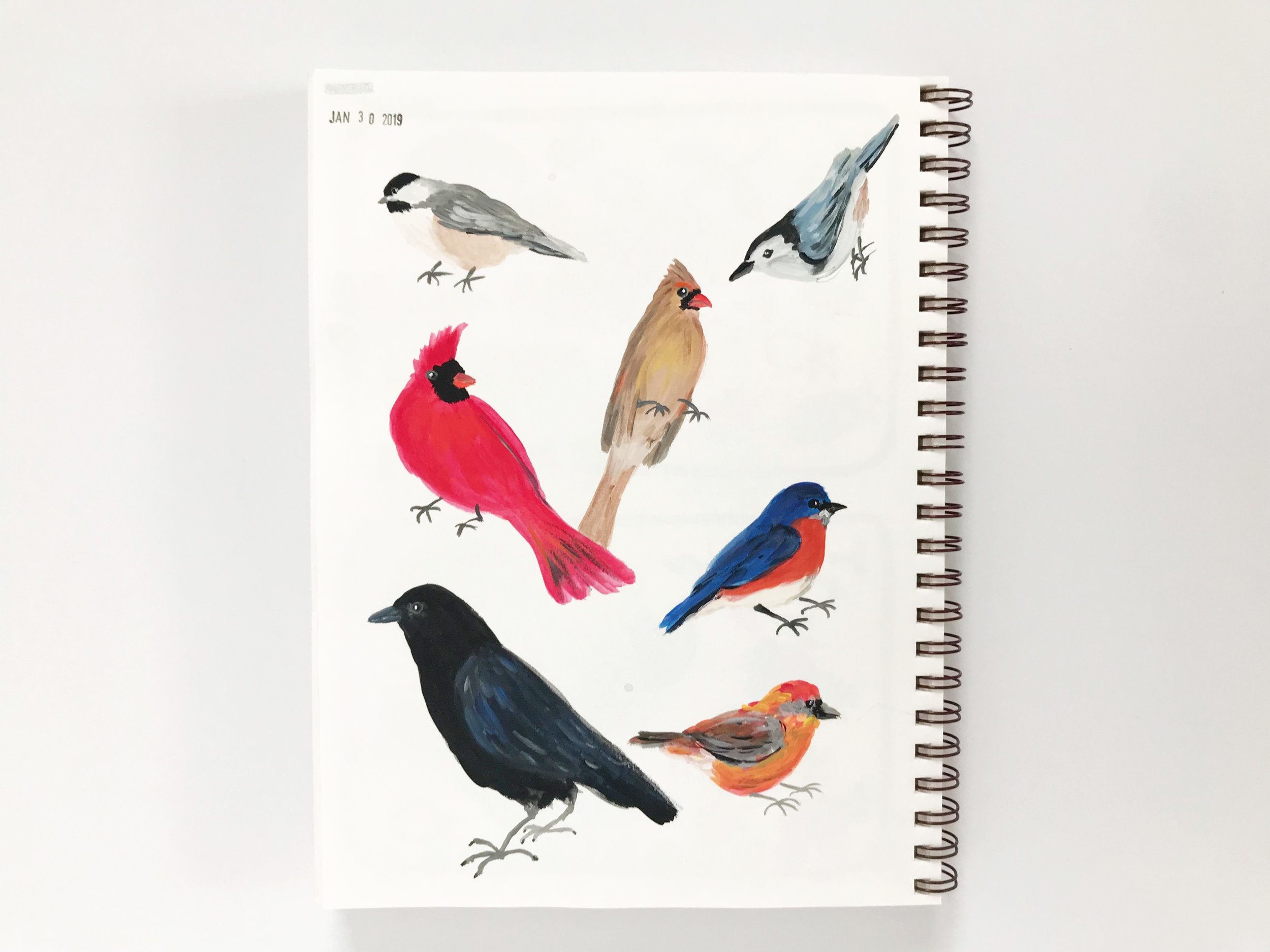Trying (and loving) New Things: Acrylic Craft Paint
Recently I’ve had to edit the wording of my bio for a few different things. In one version I say “She works primarily in watercolor but also loves challenging herself to try new things.” It’s true.
Trying new things is fun and exciting. Part of the fun is getting to play with new supplies. Whenever I hear another artist mention a certain brand of paint or sketchbook or other tool, I can’t help but start fantasizing about trying it myself. Even if it isn’t something I would otherwise have considered.
Maybe I’m just very suggestible. Or maybe it stems, in part, from early in my art journey when I believed other artists had the secrets to making good art. The right supplies were one of them.
Over the years I’ve learned the true secret: make a lot of art.
But knowing it doesn’t stop me wanting to try new supplies and tools (doesn’t trying new things ensure I make more art?).
Last fall I purchased a set of acrylic craft paint and have been using it in my sketchbooks. You might remember me sharing some of these spreads from my collaborative sketchbook with Dana Barbieri:
a spread from Anne Butera’s (right) and Dana Barbieri’s (left) second collaborative sketchbook
Dana used gouache on the left side of the book to paint her swan. I painted mine with cheap craft paint.
It’s Craft Smart brand from Michaels. The set I bought comes with 24 beautiful colors. Just seeing the bottles in my studio in their thrifted colander makes me happy.
The colors mix beautifully and I’ve had fun experimenting with them.
I would never have considered using craft paint in my art practice, but when I saw it mentioned in Katie Daisy’s list of favorite supplies (she prefers the Martha Stewart brand) I began thinking about it. Then I took a class with Pam Garrison on Creativebug and in it she recommended the Craft Smart brand. Of course I couldn’t resist after that!
Here’s a spread in my sketchbook inspired by Pam’s class:
One beauty of these paints is their versatility. They work a bit like gouache and using more water with the paint gives delicate watercolor effects.
another spread from Anne Butera’s (right) and Dana Barbieri’s (left) collaborative sketchbook
If I hadn’t painted those swatches, I wouldn’t have been able to guess that they were created with acrylic craft paint.
Use less water and it is very opaque.
another spread from Anne Butera’s (right) and Dana Barbieri’s (left) collaborative sketchbook
Layering and blending work equally well. I’ve even used them mixed with gouache. The deep pink of my flamingo was painted with gouache, but the rest of my page used craft paint. I can’t see much difference in how the paints look on the page. Can you?
another spread from Anne Butera’s (right) and Dana Barbieri’s (left) collaborative sketchbook
These paints are beautifully matte. They don’t feel plastic-y or heavy on the page, either.
another spread from Anne Butera’s (right) and Dana Barbieri’s (left) collaborative sketchbook
Although I usually recommend you use the highest quality materials you can afford, I actually think in this case the cheaper paint would be a better option for someone who’s just starting out.
a page of birds in Anne Butera’s sketchbook painted with acrylic craft paint
It’s easy to work with and gives beautiful results. The price is nice, too. Spending $14 for a set of 24 paints in 2 oz bottles means experimenting and playing and making art isn’t quite as scary as it would be with a set of 12 1/2 oz tubes of gouache that cost $40 (or more).
When I was a beginner I worried about “wasting” supplies and I’ve heard from many people over the years that one of the big things stopping them from working in their sketchbooks is a fear of “ruining” them. Paint is meant to be used (In fact, sitting in its tubes or bottles for years can ruin it).
The only way to learn how to make art is by making art. Experimenting. Playing. “Wasting” paint
monarch sketches in pencil and acrylic craft paint, decorated with gold leafing pen
and markers and pens* and pencils… Trying new things opens up your creativity. (And gives you a good excuse to shop for some new supplies!).
I even used acrylic craft paint for this canvas I painted for the KVR Art Fundraiser**
What “new” thing have you tried lately?
*the gold leafing pen above is one of a few new pens I’ve tried and loved recently. In future posts I’ll share my thoughts on them and other art supplies
**The Kickapoo Valley Reserve hosts a community art event each year. The canvases, created by area artists “of all ages and talents”, are auctioned off to support their programs. This is the first year I’m participating. The theme is Nature in Flight.
